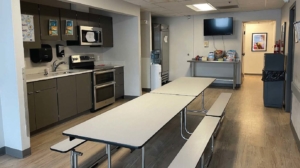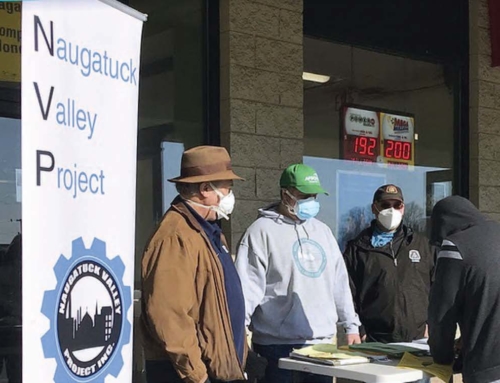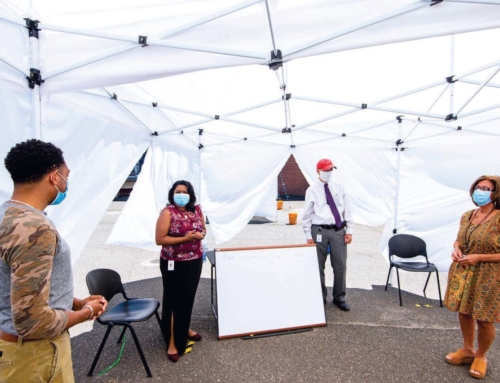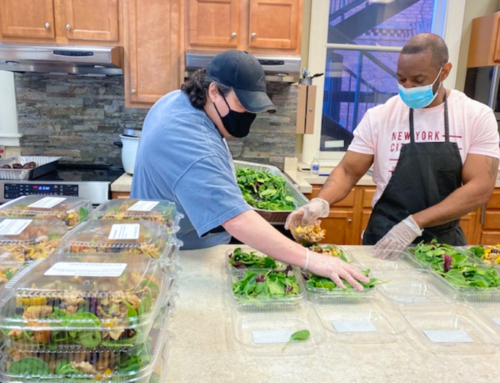
Spring 2020 delivered all of us to a new world where a cough could engender panic and a trip to the grocery store felt like a high-risk expedition. We learned to maintain social distance if we were well, and to quarantine and isolate if we were not, so that we might spare others from illness. We were encouraged to retreat and keep to ourselves— potentially as a matter of survival.

Supportive Housing Works staff.
Imagine trying to do that if you were living in a homeless shelter or on the streets.
The onset of the pandemic posed a particularly grave threat to people experiencing homelessness. In addition to the social distancing guidelines, the homeless population has high levels of chronic illness and includes many older people—both risk factors for experiencing severe COVID-19.
With the virus spreading rapidly and homeless shelters throughout Connecticut facing dangerously high occupancy, Supportive Housing Works (SHW) stepped up to find solutions. SHW is focused on ending homelessness and creating housing opportunities for all, and pursues its work by providing support and coordination among many local partners who together form a single homelessness response system. In the Foundation’s region, SHW coordinates the Northwest Coordinated Access Network, which covers Greater Waterbury and the Litchfield Hills.
Shelters needed to be decompressed immediately to keep residents safe. Under a state arrangement, the most medically vulnerable shelter residents, as well as those who required isolation due to COVID-19 illness or exposure, were moved to a Waterbury hotel. But while the hotel program provided the physical space needed for people to follow public health guidelines, it didn’t cover all the costs associated with keeping people safe.

Family dining area at the Homeless Resource Center and Shelter at St.Vincent DePaul Mission of Waterbury, Inc. (an SHW partner shelter).
SHW obtained two grants from the COVID-19 Response Fund to cover costs including extra staffing, transportation, personal protective equipment, and food delivery that enabled people to stay in the hotel for meals. These expenses were critical to keeping people safe and healthy in the hotel context, but weren’t covered by state or federal funds in the crucial early weeks of the pandemic when transmission rates in Connecticut were among the highest in the nation.

After six years, Zina was overjoyed to move out of her car and into her safe, affordable apartment with the help of the Northwest Coordinated Access Network, which SHW coordinates for the region.
The experience of St. Vincent DePaul Mission of Waterbury—an SHW partner that operates a 108- bed shelter, the largest in Connecticut—illustrates the impact. “At the beginning of the pandemic, we were able to transition guests who were 60 years old or older as well as guests who were medically compromised to the hotel to reduce the chances of these guests contracting COVID-19. Throughout the pandemic, we’ve also been placing people who have been matched to housing or had a housing plan in place, into the hotel,” explained Megan Santiago, director of St. Vincent DePaul’s Homeless Resource Center and Shelter. “Being able to place these guests in the hotel gave us a chance to decompress the shelter to ensure the health and safety of staff and guests, but it also helped by opening up more bed space for others experiencing homelessness who were staying outside.”
COVID-19 Response Fund grants provided time-critical support for the work of SHW and its network partners. And for our neighbors experiencing homelessness early in the pandemic, they made what might have been a life-or-death difference.







